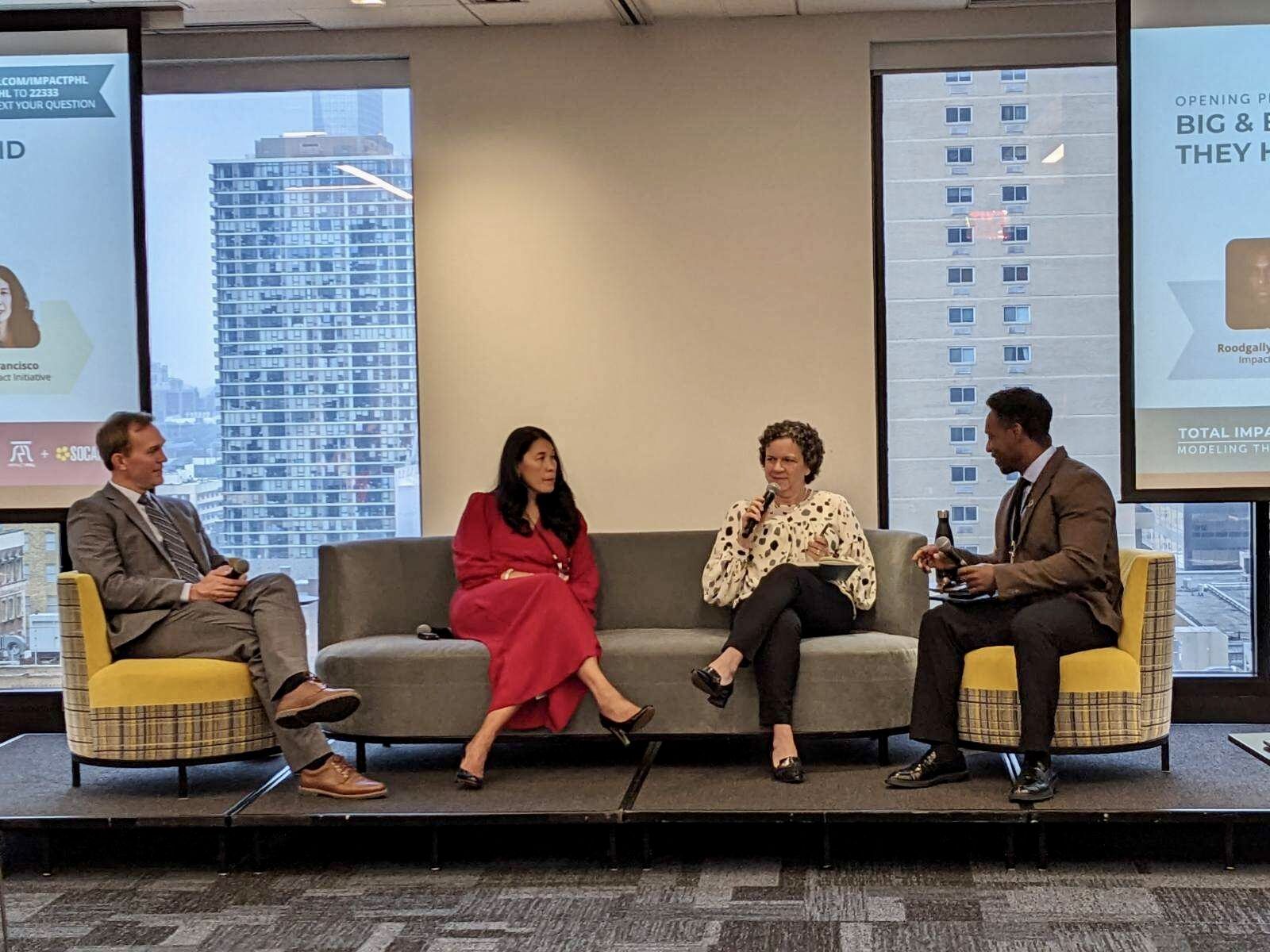Greetings, Agents of Impact!
Featured: ImpactAlpha Original
Updating investment ‘exclusion lists’ for deeper social and environmental impact. Cluster bombs and hazardous chemicals. Tobacco and firearms. Child labor and corruption. “Exclusion” lists have for decades helped investors avoid companies involved in activities that impose a negative social toll or carry significant legal or regulatory risks. Most institutional impact investors use the International Finance Corp.’s exclusion list as a reference standard to screen out the most severe cases. “An expansion of the lists to root out industries and business models that are counterproductive to impact will foster greater confidence in the investment industry as a tool for good,” writes Dmitry Fotiyev in his new role as a contributing editor at ImpactAlpha. “The process of excluding investments can be bolstered to account for the full spectrum of potentially negative economic, social, environmental and climate externalities that are counterproductive to the goals of most impact investors.”
Beefed up exclusion lists, for example, could help impact investors counteract modern-day dependency cycles, including economic models in which companies extract raw materials from developing countries while importing manufactured goods. Impact investors should consider forgoing investments into companies that seek to extract resources from developing countries for shipments abroad, unless there is clear local value-add in processing and industrial production. Likewise, exclusion lists that currently rule out projects that impinge on the lands owned, or claimed, by Indigenous peoples could go further in protecting communities from environmental damage – including biodiversity loss – or adverse social effects that are not limited to expropriated land. “The public nature of these lists also helps entrepreneurs baseline their expectations in terms of which activities may, or may not, receive funding from the ever-growing number of institutional impact investors,” says Fotiyev, a partner with Brightmore Capital in Senegal. “This advance knowledge can stimulate them to focus their energies on businesses where the net economic, social and environmental value of externalities is overwhelmingly positive.”
Keep reading, “Updating investment ‘exclusion lists’ for deeper social and environmental impact,” by Dmitry Fotiyev.
Dealflow: Follow the Money
Canada’s TELUS commits $45 million to corporate social impact fund. The telecommunications company launched the fund to invest in local and international impact startups focused on improving health, agriculture, the environment, and social and economic inclusion in Canada. It is looking to raise the rest of its $100 million target for the Pollinator Fund for Good from outside investors, but is prepared to commit the funds itself if others do not participate, a company spokesperson told ImpactAlpha.
- Early deals. The fund has already invested in U.S.-based Tidal Vision, a low-waste synthetic chemicals company; Rizha Capital, an impact fund that invests in early-stage social enterprises in British Columbia; and Windmill Microlending, which offers low-interest microloans for skilled immigrants and refugees.
- Corporate impact. TELUS’s Blair Miller will join Adrianna Alterman of Salesforce Ventures Impact Fund, Bill Young of Social Capital Partners and ImpactAlpha’s David Bank, to discuss “Corporates and impact investing,” Wednesday, Dec. 2 at 12:35pm ET, as part of MaRS Impact Week.
- Dig in.
Aurora Solar raises $50 million to digitalize solar energy. The San Francisco-based software startup helps solar installers map and plan installations. Usage has increased amid COVID, as solar companies have been forced to do more of their pre-planning remotely. Aurora Solar’s Samuel Adeyemo said the company’s aim is to “help the industry thrive in this new environment.” ICONIQ led Aurora’s Series B round. Existing investors Energize Ventures, Fifth Wall and Pear VC also participated.
- Solar software. In April, Acumen backed Solaris, which makes software that manages billing and customer engagement for solar companies in emerging markets.
- More.
Amicus.io raises $8.7 million to democratize donor-advised funds. The Charlotte-based fintech startup is seeking to make it easier for everyday savers to take advantage of the tax and other benefits of donor-advised funds. Amicus’ DAF 2.0 can be built into consumer banking apps, allowing users to move money from checking, savings and investment accounts into donor-advised funds, from which they can direct funds to 1.8 million U.S.-based nonprofits and philanthropic organizations – and receive automated tax receipts for their donations. Amicus has launched DAF 2.0 with one unnamed U.S.-based bank, founder Cor Hoekstra told ImpactAlpha. Amicus’ Series B round was backed by Vancouver-based family office The FR Group and the Wells Fargo Startup Accelerator. Keep reading.
Signals: Ahead of the Curve
Judge rules private prison operator can’t claim defamation by Candide Group. Citing “truth being a defense,” a federal district court judge dismissed a defamation suit brought in March by CoreCivic, one of the largest private prison operators, against Morgan Simon and her investment firm, Candide Group. Simon had called attention to CoreCivic’s role in mass incarceration and the separation of migrant families in Forbes and other forums. CoreCivic did operate detention facilities for parents separated from their children under the Border Patrol’s family separation policy, noted U.S. District Judge William Alsup, even if the company did not house the children themselves. “The allegedly defamatory statements were true enough under the First Amendment and under California defamation law,” Alsup said. The dismissal of the suit was the latest setback for private prison merchants, as banks, states and investors abandon the sector. President-elect Joe Biden vows to end contracts with private prisons, which house 70% of immigrant detainees and receive more than $1 billion per year from federal contracts.
- Private prison divestment. JPMorgan Chase, Bank of America, Wells Fargo and BNP Paribas are among the banks that have stopped lending to private prison firms. As You Sow’s Prison Free Funds online screening tool has helped investors avoid prison-related stocks. CoreCivic, which suspended its quarterly dividend in June, was bumped off the S&P MidCap 400 in August.
- Justice tech. Startups such as Flikshop, R3 Score and 70 Million Jobs are designing tools to help individuals avoid the criminal justice system or transition out of it (see, “Justice tech’ entrepreneurs look to disrupt the cycle of recidivism”). The De-Carceration Fund is investing in and supporting enterprises working to ease suffering caused by the criminal justice system.
- Share this.
Agents of Impact: Follow the Talent
Brian Deese, BlackRock’s global head of sustainable investing, is under consideration as director of the National Economic Council in the Biden administration, reports Politico. Cranemere’s Jeffrey Zients may become Biden’s “COVID czar”… David Bank will talk about ImpactAlpha’s “Impact On” campaign with Impact Entrepreneur’s Laurie Lane-Zucker in “Reporting on impact,” Thursday, Dec. 3… Quantified Ventures seeks summer associates in environmental finance and health and human services in Washington, D.C. or remote… The Intertribal Agriculture Council is hosting a “Resiliency through agriculture” storytelling competition, Wednesday, Dec. 9… Check out holiday gift guides from Pacific Community Ventures, SheEO, Change Labs and Backstage Capital.
Thank you for reading.
– Nov. 30, 2020











